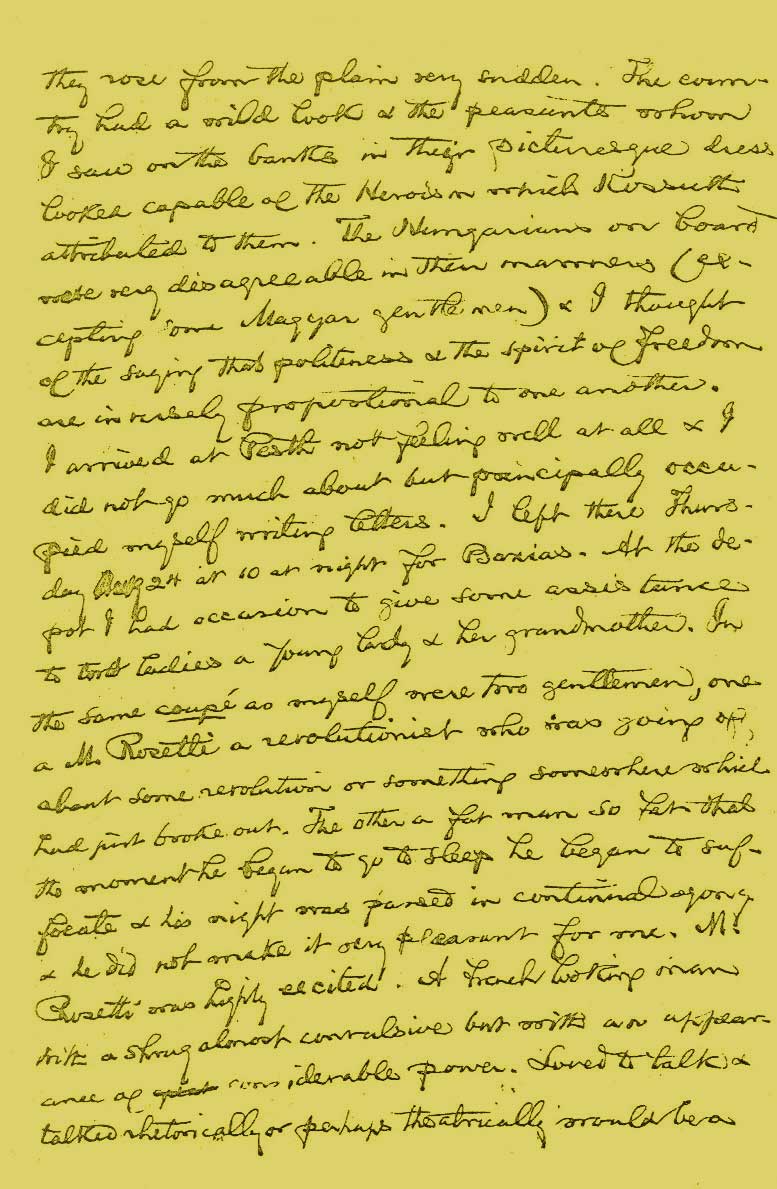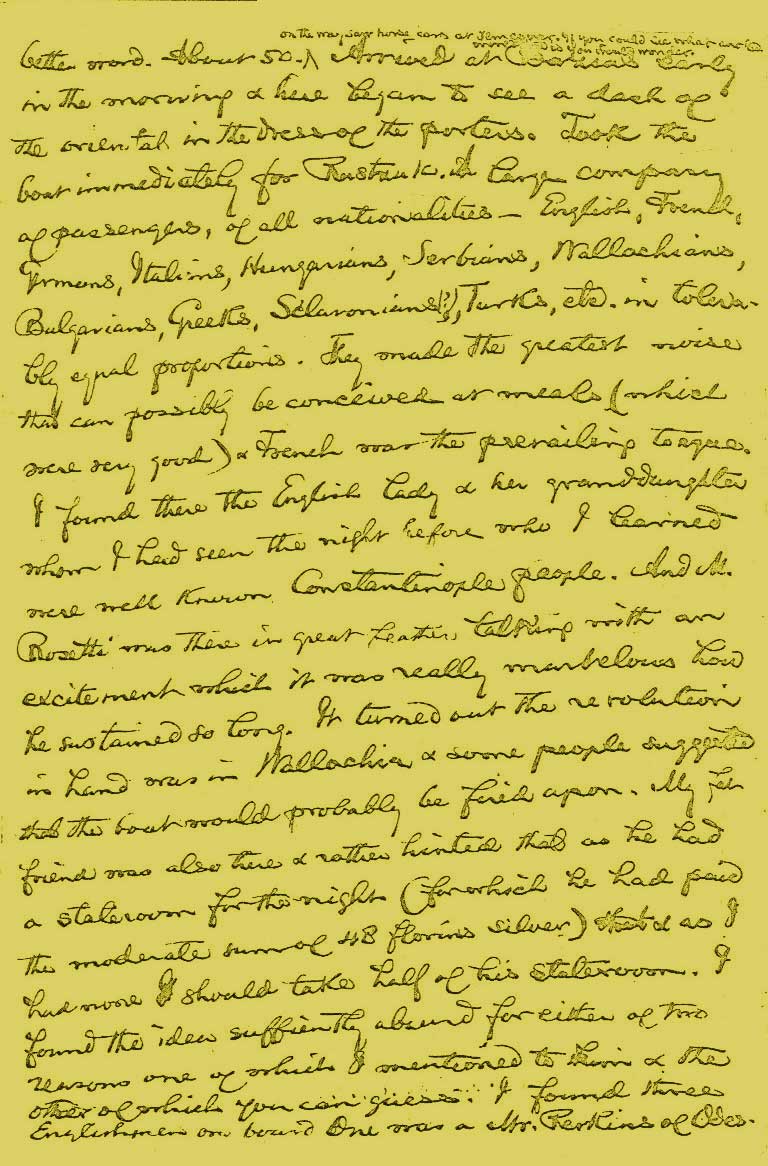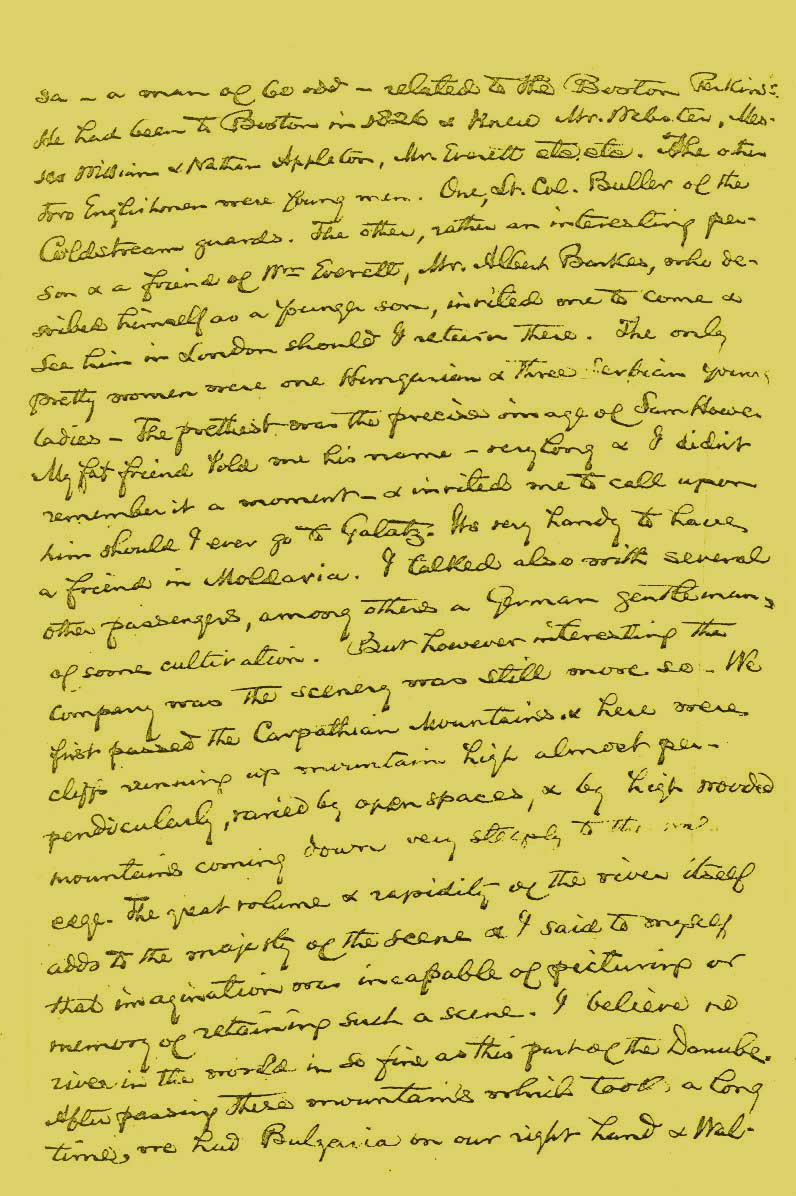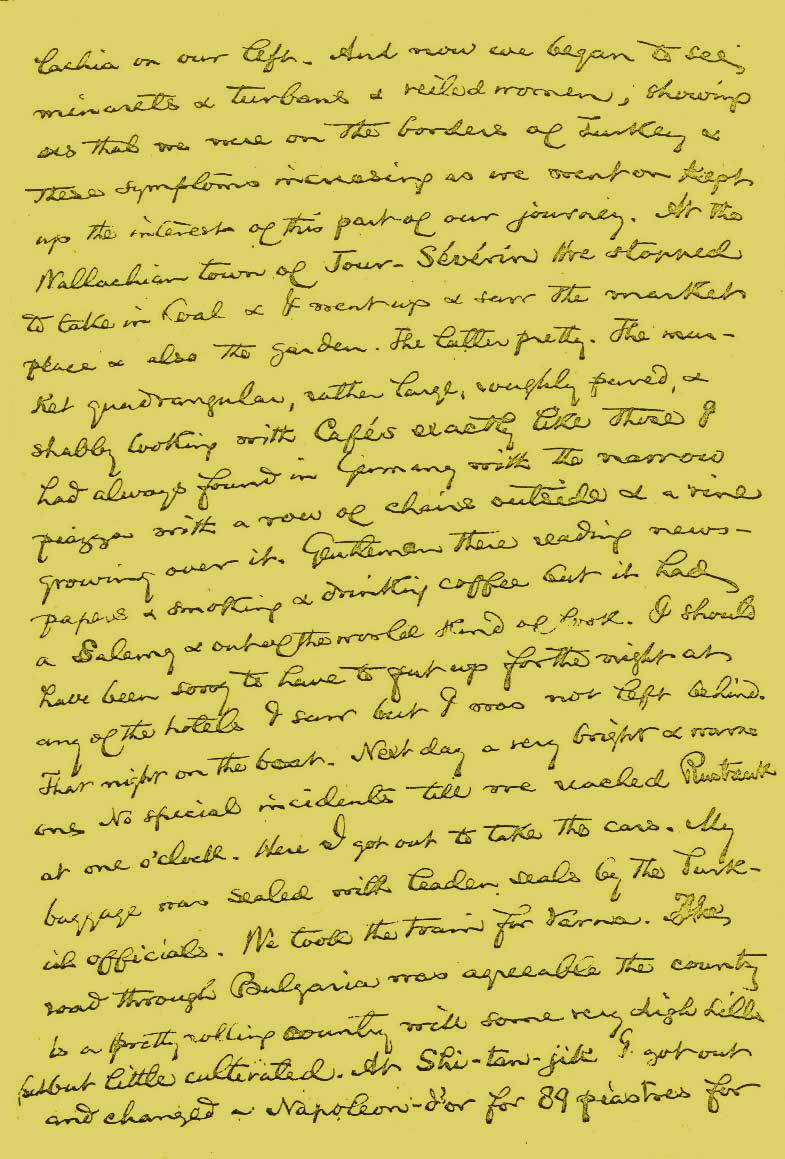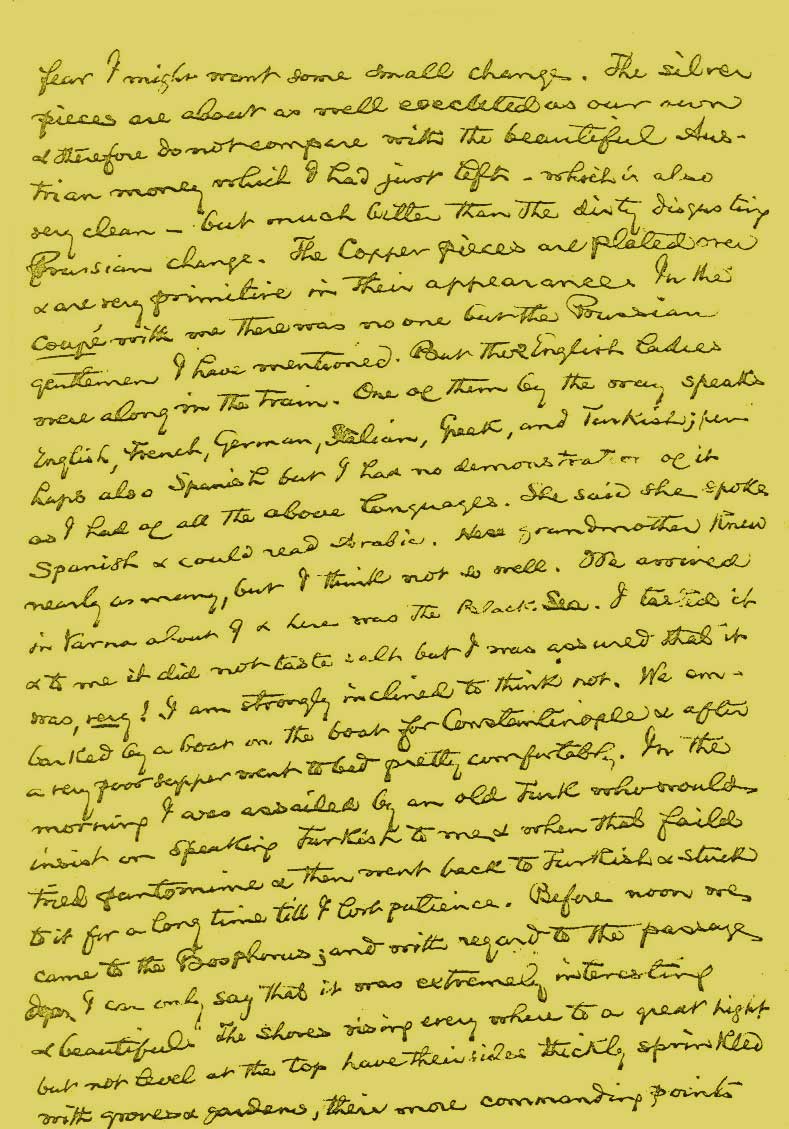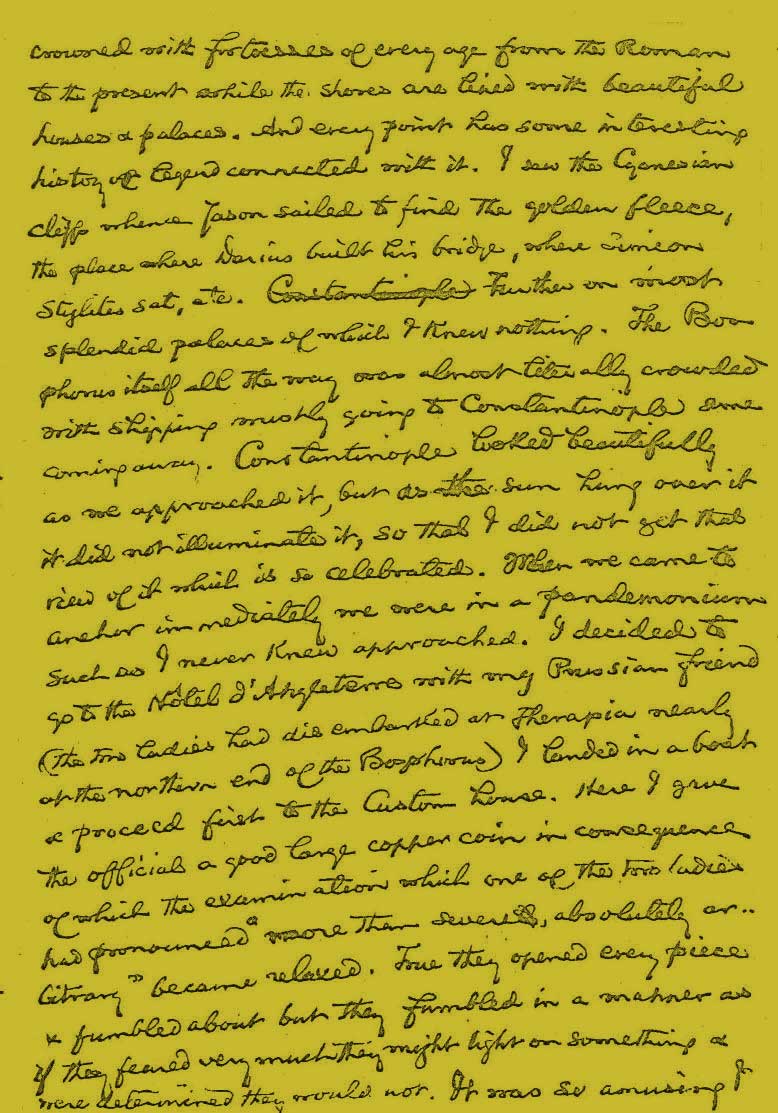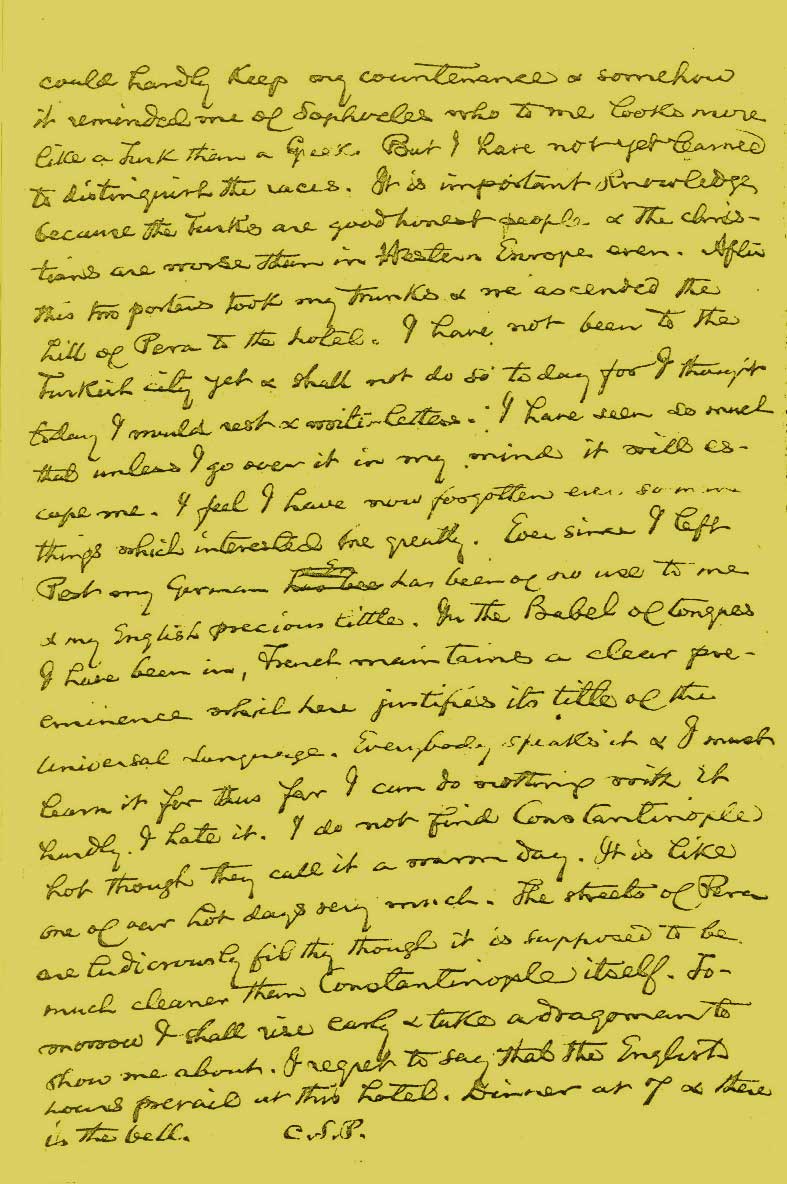| Constantinople.
1870 August 28. Sunday
Dearest Zina- I arrived here today after a most interesting journey from Vienna. I don’t think by the way I remembered to say how beautiful my journey from Prague to Vienna was. It was so, the passage through the mountains of Bohemia being very fine. Very precipitous dark green hills descending to a very narrow valley in which wound a little stream. Passed through eleven dark tunnels. A capital tour for young married people. On Tuesday Aug 23 I left Wien early in the morning by boat & arrived at Pest that same evening just after dark. The way was through Hungary & the picturesque hills were crowned in many places with great ruins of tremendous strongholds erected I suppose for defence against the turks. Everything on the banks had a look of novelty, of which the form of the Hungarian church steeples will give some idea.
|
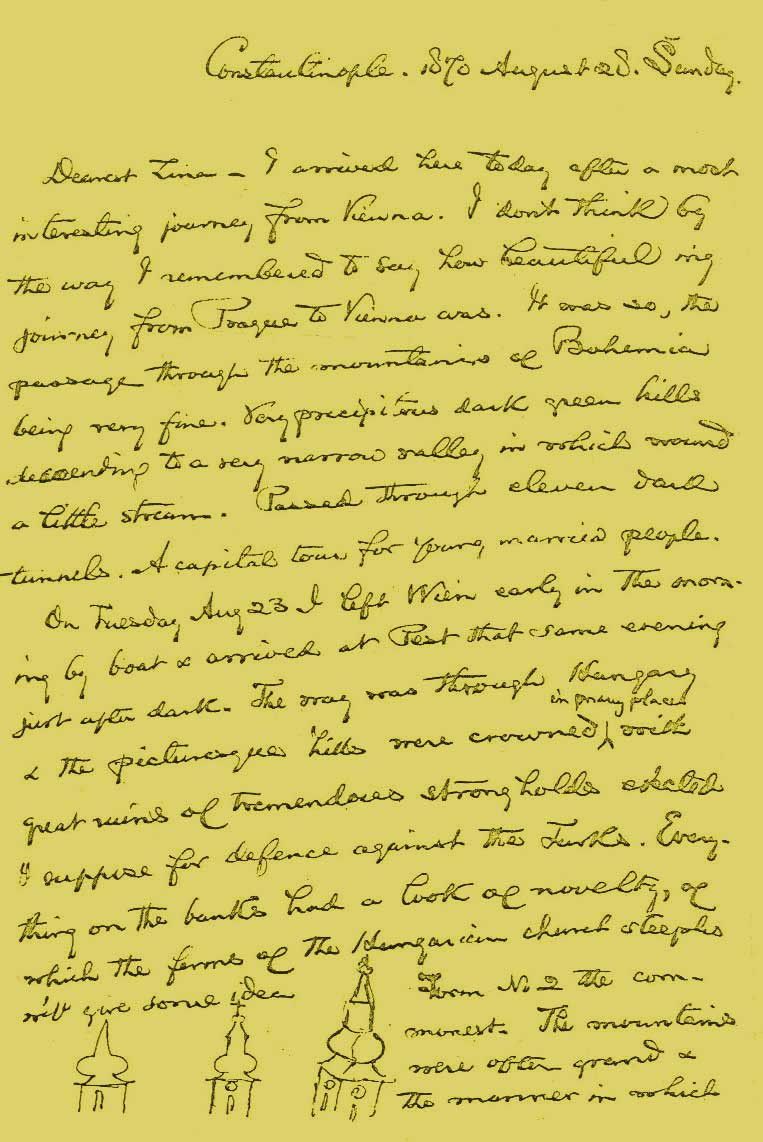
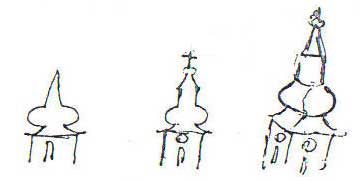 Form
Nº 2 the commonest. The mountains were often grand & the manner
in which
Form
Nº 2 the commonest. The mountains were often grand & the manner
in which